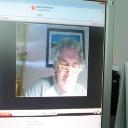Yahoo Answers is shutting down on May 4th, 2021 (Eastern Time) and beginning April 20th, 2021 (Eastern Time) the Yahoo Answers website will be in read-only mode. There will be no changes to other Yahoo properties or services, or your Yahoo account. You can find more information about the Yahoo Answers shutdown and how to download your data on this help page.
Trending News
PHYSICS ASAP!?
A playground merry-go-round of radius 1.8 m
has a moment of inertia 239 kg.m2
and is
rotating at 15 rev/min about a frictionless
vertical axle. Facing the axle, a 21 kg child
hops onto the merry-go-round, and manages
to sit down on the edge.
What is the new angular speed of the
merry-go-round?
Answer in units of rev/min.
BONUS: A cable passes over a pulley. Because the
cable grips the pulley and the pulley has nonzero mass, the tension in the cable is not the
same on opposite sides of the pulley. The
force on one side is 138 N, and the force on
the other side is 79 N.
Assuming that the pulley is a uniform disk
of mass 2.68 kg and radius 1.113 m, find the
magnitude of its angular acceleration. [For a
uniform disk, I = (1/2)mr2
.]
Answer in units of rad/s
2
.
1 Answer
- oubaasLv 77 days ago
1)
before
Jmgr = 239 kg*m^2
Jmgr = 2PI/60*n = 0.10472*15 = 1.57 rad/sec
L = J*ω = 239*1.57 = 375 kg*m^2/sec
afterJc = mc*r^2 = 21*1.8^2 = 68 kg*m^2
J = Jmgr+Jc = 239+68 = 307 kg*m^2
angular momentum L is conserved
ω' = L/J = 375/307 = 1.22 rad/sec
2)
MoI J = m/2*r^2 = 1.34*1.113^2 = 1.660 kg*m^2
ΔT*r = J*α
angular acceleration α = 59*1.113/1.660 = 39.56 rad/sec^2





